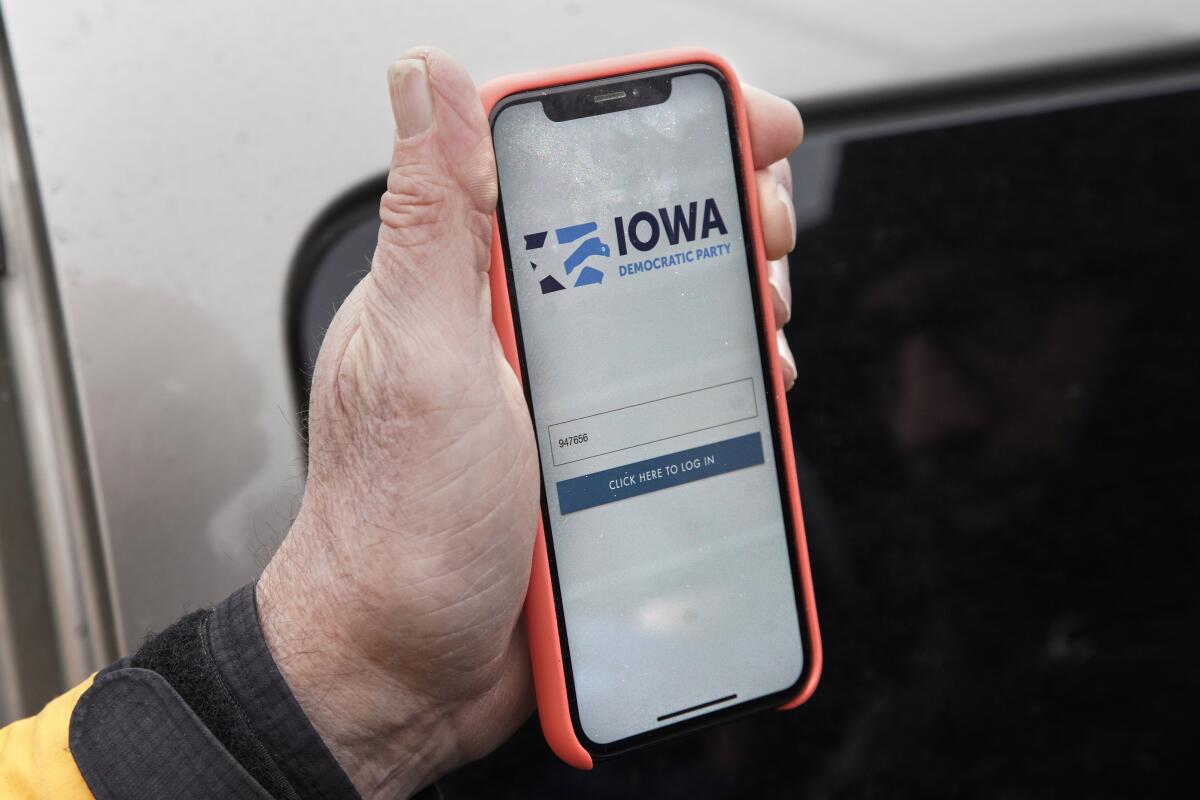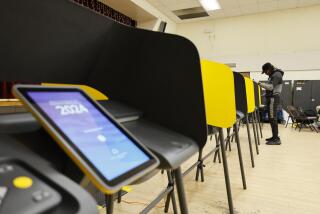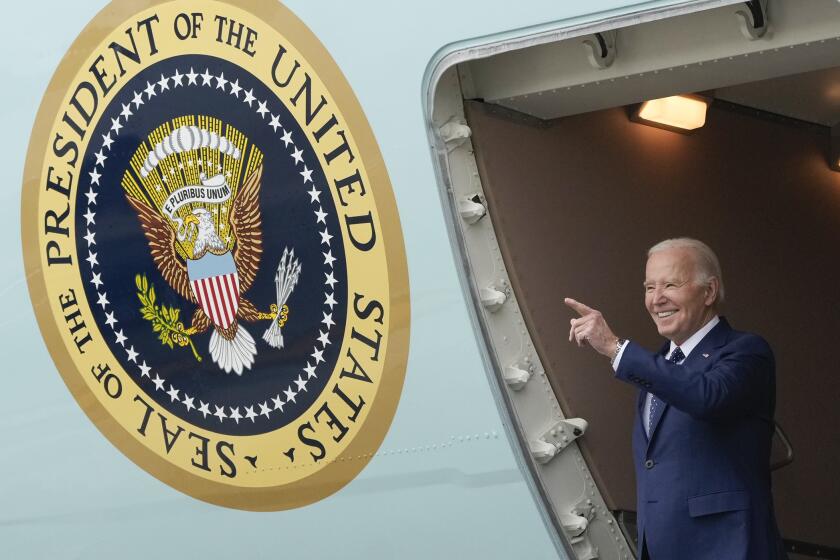Op-Ed: Upset by the Iowa caucuses chaos? It will probably make you a better voter

The aftermath of the Iowa caucuses has left many voters feeling unmoored. Even before votes were cast, a New York Times headline reported that Iowa Democrats were feeling “uncertainty, verging on anxiety and even panic.” Last week, those feelings reached a crescendo as misreported results, tech issues, overall confusion and, most critically, uncertainty over who actually won took over the news cycle.
The chaos and frustration in Iowa, by all accounts, are shared by Democratic voters across the nation. Anxiety has set in: Do voters really have any control here? Do we really understand when and if our vote counts? Can the voting mechanisms be fixed? Bernie Sanders is calling the situation a disgrace. And what Pete Buttigieg said the night of the caucuses is echoing: “Iowa, you have shocked the nation.”
As a cognitive scientist who studies how anxiety affects the way people function, I know that feelings of shock, frustration, uncertainty and loss of control can’t be ignored, and that these feelings tell us a lot about how voters may react in the primaries to come. Though it seems counterintuitive, when people feel worried and anxious, their brains respond by sharpening their focus on the details of a situation. In other words, anxious voters may pay closer attention to the issues at hand and actually become more thoughtful voters.
Two very different processes come into play when we make decisions. The first is automatic — we decide quickly and efficiently about one thing over another, so quickly and efficiently that we may not even be aware of how we came to that conclusion. In the second process, we take time to reason through things and systematically gather information before making up our minds.
In general, research indicates that voters rely on the automatic process when they mark their ballots rather than taking a close look at candidates’ qualifications and policy positions. How competent a politician looks (tall, conventionally good looking) can predict a victory or a defeat in an election. And when voters use the automatic process, other types of bias creep in too. In 2016, sexism wasrelated to voting for Donald Trump — even among left-leaning voters.
Interrupting this automatic process is possible. One study found that when voters experience anxiety, they take a closer look at the candidates. They start to pay much closer attention and take in details about policy platforms and act accordingly. And that means their voting behaviors can change.
With the Iowa situation still up in the air, the New Hampshire primary may give us results that buck expectations. When people start paying closer attention, they might just channel their anxiety and recognize and push past bias — whether it is related to gender, sexuality, age or countless other factors that may color our perceptions.
In fact, the best we can do with anxiety is put the uncertainty it causes to use in this way. We voters can leverage our feelings to reach more reasoned and informed decisions about casting a vote for the most qualified candidate with the best ideas.
Campaign ads, stump speeches and debate attacks engage voters’ emotions. Tapping into anxieties about the election process itself, the economy, the environment and the future can help motivate us to evaluate candidates on the merits and the feasibility of their agendas, rather than relying on snap judgments. In other words, a little anxiety now can help us all feel a little less anxious about this election process moving forward.
Sian Beilock is a cognitive scientist and president of Barnard College, Columbia University.
More to Read
A cure for the common opinion
Get thought-provoking perspectives with our weekly newsletter.
You may occasionally receive promotional content from the Los Angeles Times.






